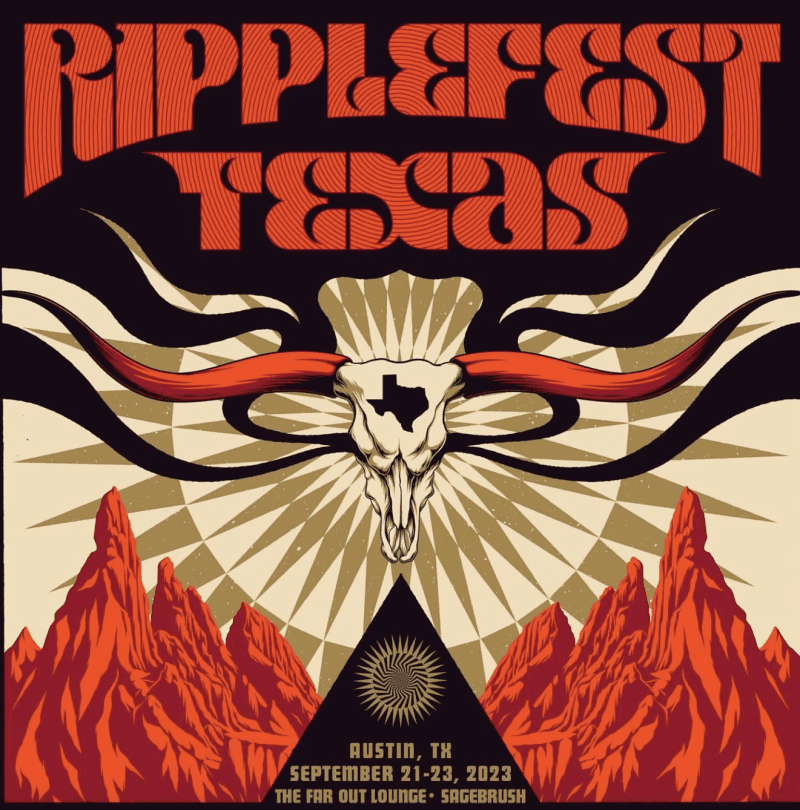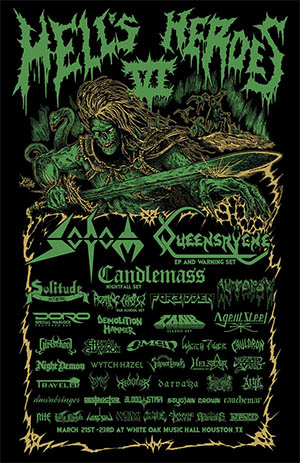Friday night at the Orpheum had the stuff legends are made of, with two generations of rock ‘n’ rollers performing a collective career second wind.
Lou Reed has finally lived up to his label of the “Godfather of Punk” by squeezing out a record worthy of his work in The Velvet Underground. The Velvets were the groundbreaking combo who proved they could create enjoyable music about grimy city life with cacophonous chaos in “I’m Waiting For the Man,” “Heroin” and “Sister Ray.” After scaring the hell out of the fans of 60’s wimp pop, the Velvets surprised the teenyboppers with some of the most beautiful songs ever — “Here She Comes Now,” “Pale Blue Eyes,” “Some Kinda Love” and “Candy Says.”
Until New York, Lou Reed’s solo career has been lackluster. With several bad albums and a handful of relatively good ones – Berlin (1973), Street Hassle (1978),The Blue Mask (1982), Legendary Hearts (1983), New York (1989) may be his best.
New Jerseyites The Feelies opened up the show with their distinct drone/rockers. Starting in the New York clubs of the late 70s that the Velvets helped break in, The Feelies developed a fusion of the electric guitar interplay of the Byrds, Velvet Underground and Television. The resulting music consisted of hyperkinetic rhythms underlying a high velocity windstorm of layered guitar drones.
In their three albums – Crazy Rhythms (1980), The Good Earth (1986) and Only Life (1988), the band consistently used a light touch in recording the songs with subtle vocals in the back of the mix. Lengthy instrumental duels that veered from acoustic intros to madly furious riffing are subdued compared to their neurotic live performances.
Their set consisted of Only Life tunes played with more meaty percussion and a quicker pace. Glenn Mercer’s vocals remained quiet with the exceptions of his addrenalin-charged shouting in a new song and a crunching cover of Neil Young’s “Sedan Delivery.” At their best, the intense but relaxed strumming would hypnotize the audience as drummers Stan Demeski and Dave Weckerman, and bassist Brenda Sauter rolled their eyes back into their skulls and chugged along. Ten, at just the right moment they would slash apart the guitar-woven quilt with Bill Million’s savage noise. In “Slipping (Into Something)” the distortion gave way to a fluid arpeggio to make up a coda straight out of “European Son.”
“For Awhile,” “The Final Word” and “Too Far Gone” were also highlights of rapturous acceleration and harmonies. The only disappointment was the absence of “What Goes On,” the Velvet Underground song they covered on Only Life. Perhaps they were afraid of tackling it under the scrutinizing gaze of their mentor.
Lou Reed’s treatment of his own oldies were half-assed. But for the majority of the show, the other man in black did his stuff. Reed’s smartest move was to pick musicians who have distinct styles and personalities.
Guitarist Mike Rathke helped write some of the music and provided solid rhythms for improvisatory interplay. Fred Maher not only played drums but also produced. Jazz man Rob Wasserman played amazing rock ‘n’ roll bass with a Clevinger electric upright six-string.
Lou is a fan of the kind of sound made by an old Fender guitar on an old Fender amplifier. It’s a spare, rough buzz not meant to be sugarcoated with production tricks.
Together they make simple articulate music comparable to the 1969 VU album, the perfect base for Lou’s unpretentious, sometimes deadpan, sometimes earnest lyrics. He avoids sweeping holier-than-thou righteousness by reveling in the ugly details.
Mr. Reed and friends played most of New York in the order the songs appear on the album, staring with the rocking “Romeo Had Juliette” about gun-slinging drug dealers. Throughout the show he gave each song a powerful evocation of urban malaise, the tone oscillating between pent-up fury, bitter sarcasm and H.L. Mencken humor. “This room costs 2,000 dollars a month. You can believe it, man, it’s true. Somewhere a landlord’s laughing till he wets his pants.” After every sharp one-liner the crowd cheered in approval.
In “Dirty Blvd.,” images of life in a Manhattan welfare hotel cause Lou to sarcastically sneer “Give me your tired your poor, I’ll piss on ’em. That’s what the Statue of Bigotry says, Your poor huddled masses, let’s club ’em to death and get it over with…”
Reed’s diatribe chronicles a homeless Vietnam veteran begging outside luxury coops in “Xmas in February,” and friends dying of AIDS in “Halloween Parade.” He sees battered children become abusive parents in “Endless Cycle.” Racism, environmental decay and municipal corruption add up to bleak, brutal truths about a crumbling city.
He doesn’t pretend to have all the answers. He does offer a historical document of the end of the eightes and more rage and wit than anything else in 1989.
The audience was reminded that the old godfather will soon be pushing 50 when he took advantage of the slow tunes by sitting down for a cigarette. He took a break and let Wasserman pluck the hell out of that Clevinger before considering fatherhood.
Why stop at one, I might have ten, a regular TV brood. I’d breed a little liberal army in the woods. Just like those redneck lunatics I see at the local bar with their tribe of mutant inbred piglets with cloven hooves. I’d teach them how to plant a bomb, start a fire, play guitar, and if they catch a hunter shoot him in the nuts.
He isn’t afraid to be rude, either, with “Good Evening Mr. Waldheim,” equating Kurt Waldheim’s career in the Nazi’s army and Jesse Jackson’s association with the anti-Semitic Nation of Islam leader Louis Farrakhan.
In “The Last Great American Whale” he jokes, “My mother said she saw him in Chinatown…but you can’t always trust your mother.” The end of the song turns grim with verses about Americans polluting the rivers.
Just in case the audience got caught up in his words of wisdom, Reed turned on the juice for songs like “There Is Not Time,” which he rocks like a bastard.
Reed wrapped up his furious set about living in New York City in 1988 with an elegy to Andy Warhol, “The Dime Store Mystery.” The eerie quality of Wasserman’s bow on his bass recalled The Velvets when John Cale still added his avant-classical touch.
After a short break the band came back and rocked through “I Love You, Suzanne,” “Doin’ The Things That We Want To,” and “Walk On the Wild Side,” which ended with a Rathke guitar substitute of the sax on the record.
“Sweet Jane” just plain sucked. Everything I liked about the song on Loaded was missing, including the biting chorus. Reed made it sound even more tired than the Cowboy Junkies, and should have just left the hapless, over-covered song alone. His treatment of “Rock And Roll” was better, with even the uptight looking middle-aged fans dancing in the aisles.
“Video Violence” from Mistrial was a nice change of pace with insistent, hammering guitars and drums stiffening into a dizzying lock-step. The ferocity of that jam is similar to that of “Sister Ray.” “Vicious” perfectly complemented the musical aggression.
Then with a snarl and a cackle, godfather Lou and friends packed it in to rest up for yet another night of giving 80’s happytalk a little stomping.







